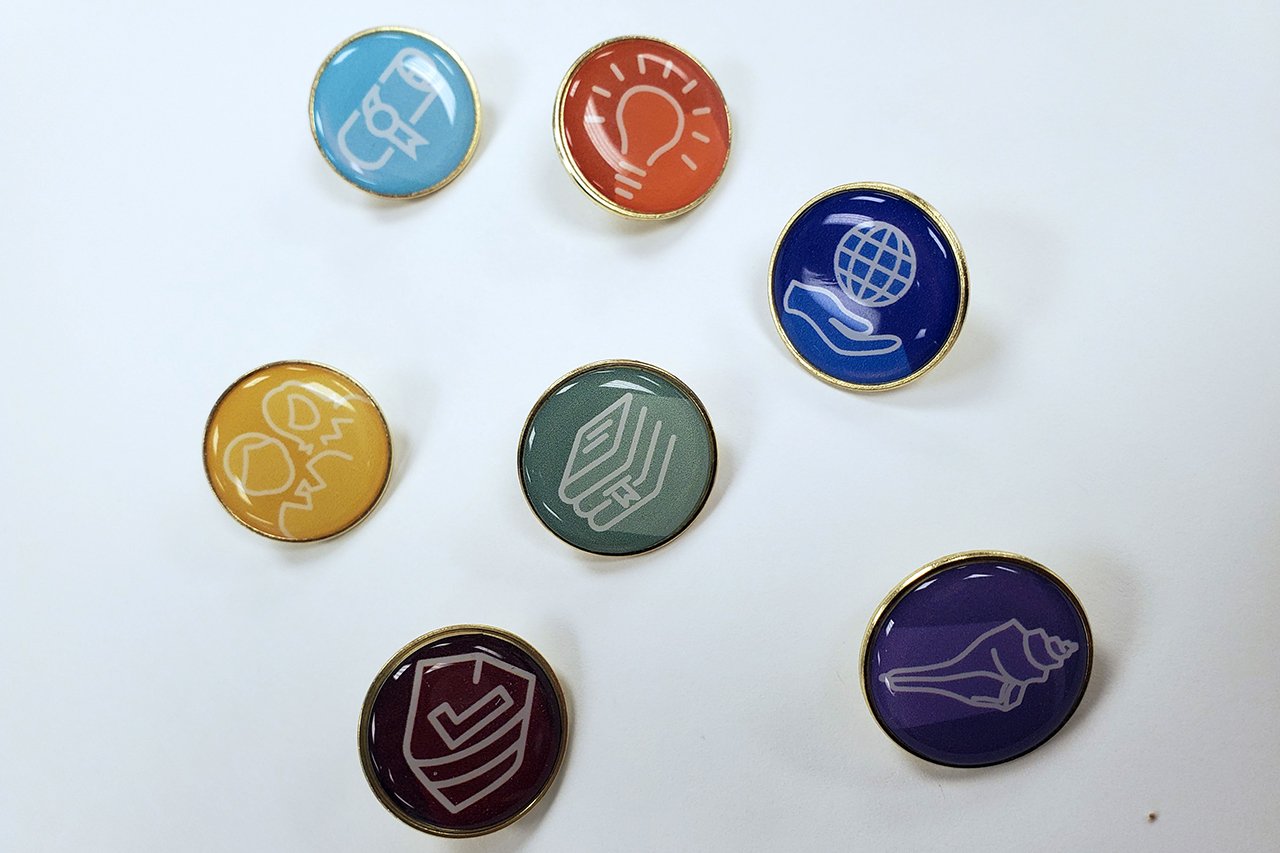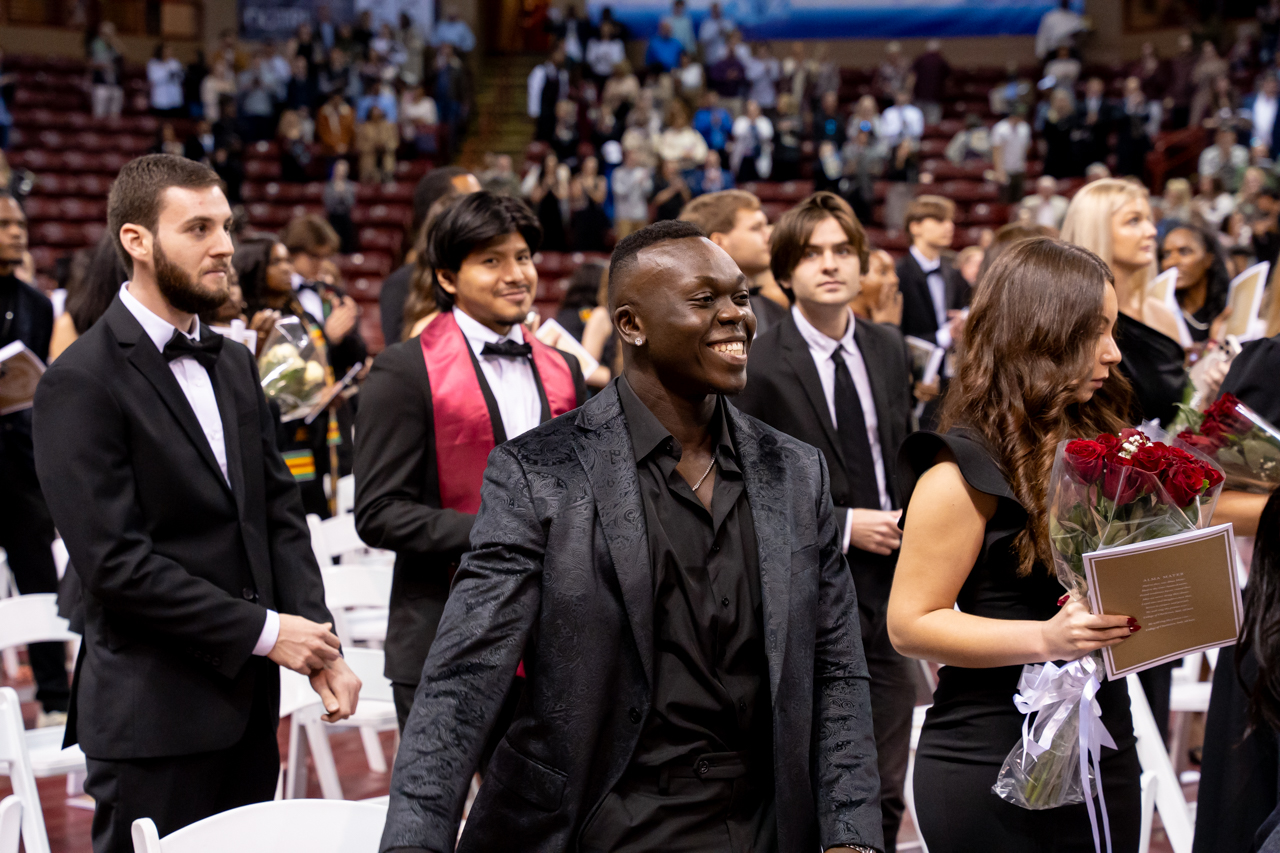Three CofC Professors Receive Fulbright U.S. Scholar Fellowships
Three College of Charleston professors have received Fulbright U.S. Scholar Program awards for the 2024–25 academic year.
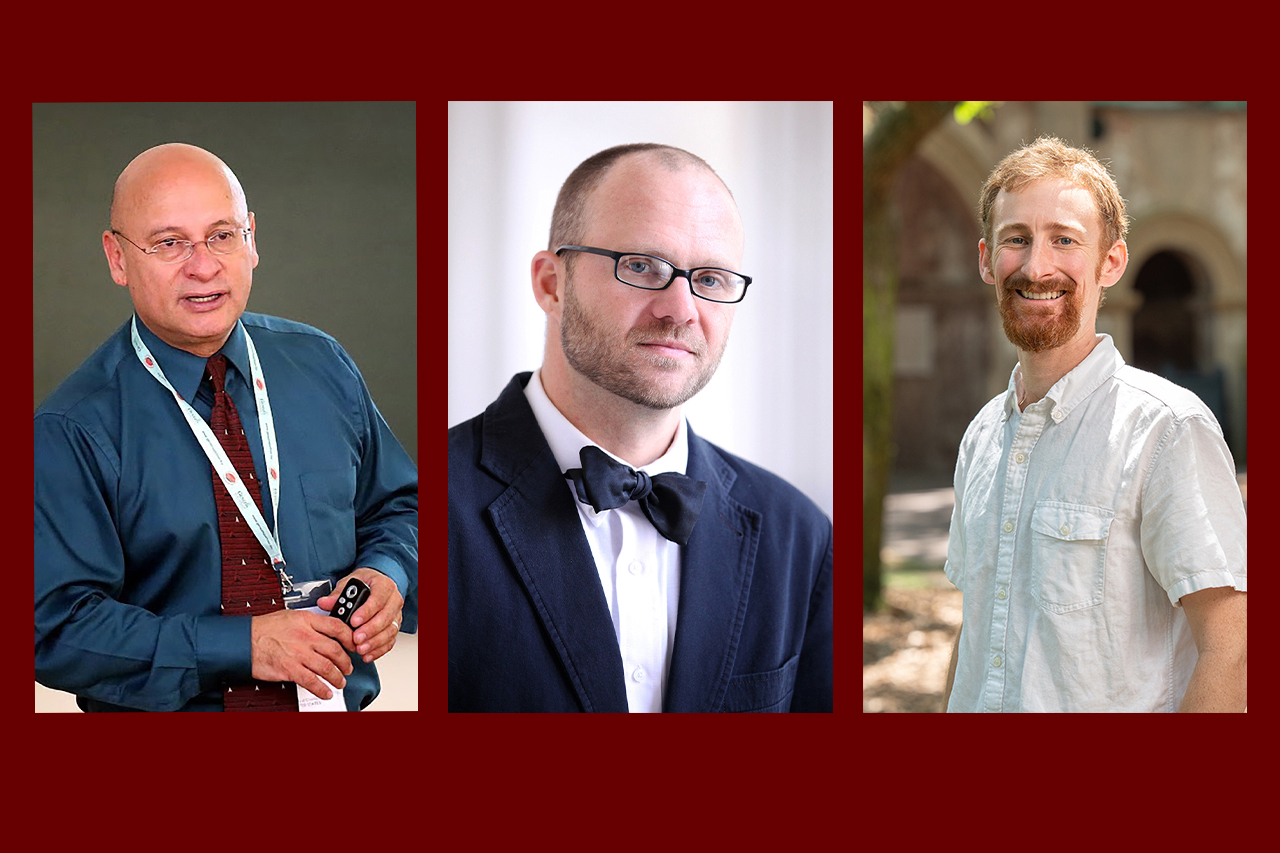
Three College of Charleston professors have received Fulbright U.S. Scholar Program awards for the 2024–25 academic year. Marvin Gonzalez, Brian Lanahan and Teddy Them will learn and lecture in their respective fields in different parts of the world through the international educational exchange program.
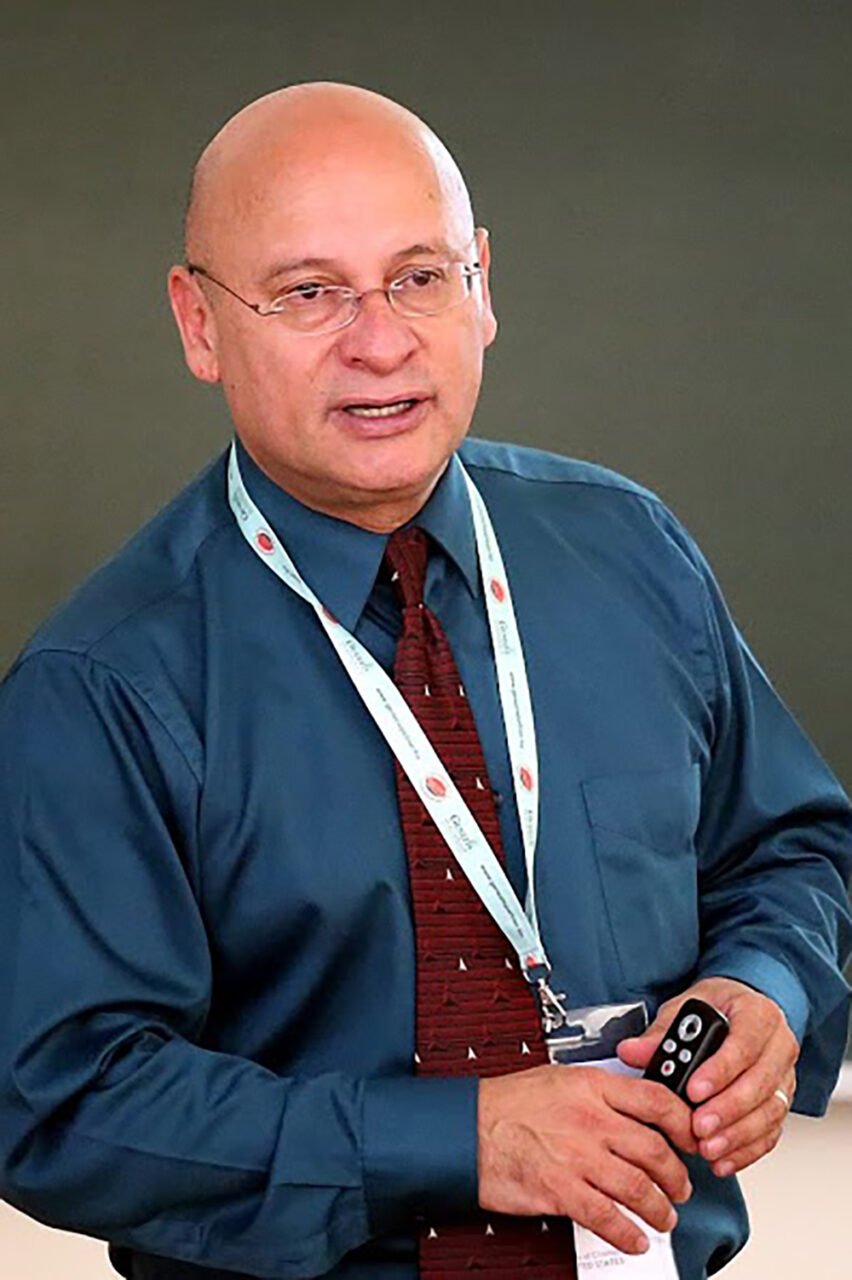
Gonzalez, associate professor of supply chain and information management, received a Fulbright to North Macedonia, where he is working with academics and practitioners to develop quality systems for the country’s food distribution networks.
“I am doing a diagnosis of the current situation, with emphasis on logistics and transportation,” says Gonzalez, who will be conducting his project, “Navigating Food Supply Chain Efficiency: Insights into North Macedonia,” at the University of Saint Kliment Ohridski. “I am also working with the faculty of tourism and we are working on two research projects, one related to the use of lean business tools and another on hotel logistics.
“I want to apply my experience of more than 35 years of work in the Lean Six Sigma and supply chain management areas in a system where there is no quality culture and economic barriers have put the industry in general in a non-competitive position,” he adds. Gonzalez will return in January 2025.
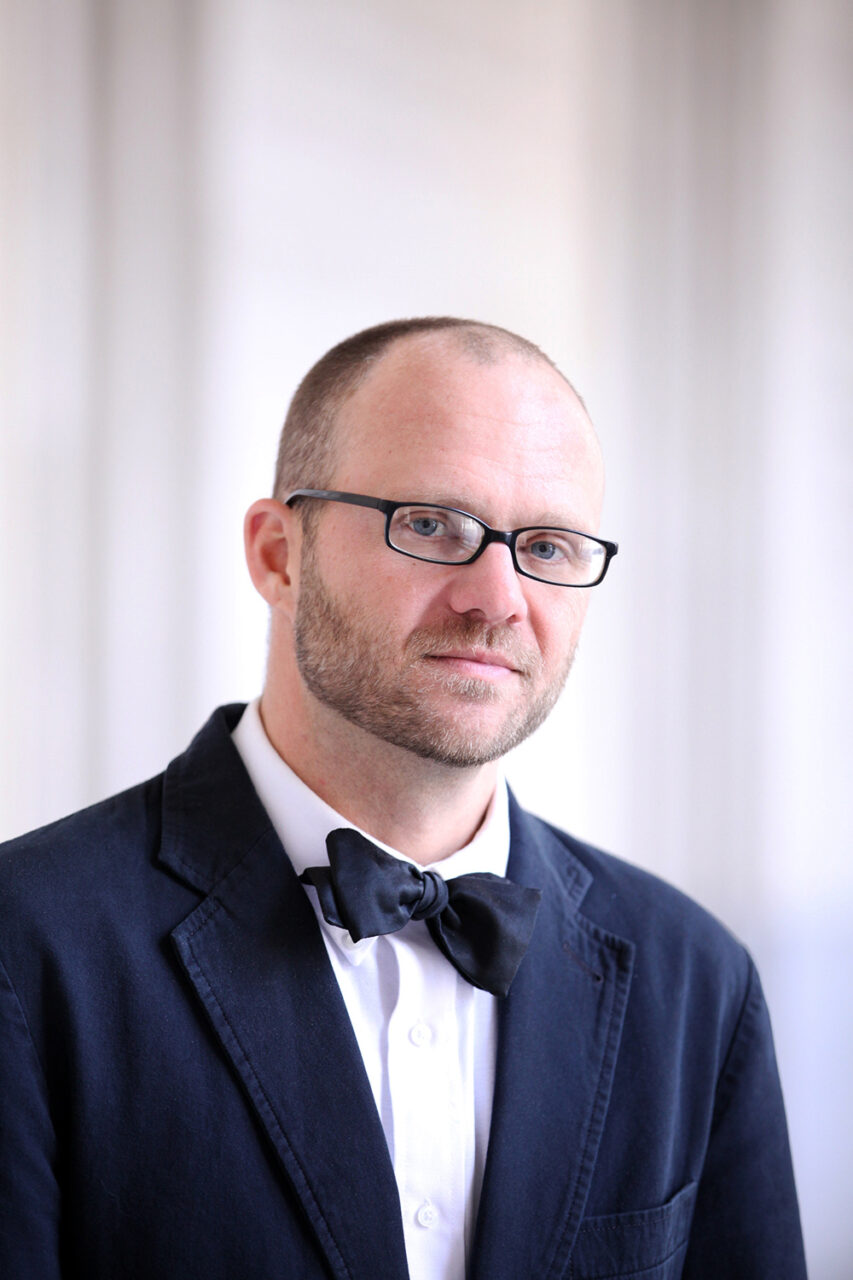
Lanahan, professor of teacher education, left for Croatia, where he is teaching and conducting research at the University of Zadar, on Sept. 1, and will stay there until Dec. 31, 2024. This is his third Fulbright Scholar fellowship.
“I am excited to be back in the Balkan,” he says. “I love the complex history and Croatia is an interesting post-conflict case study.”
Lanahan’s previous Fulbright Scholar grants brought him to Bosnia and Herzegovina (2008–9) and to Georgia (2018–19), resulting in two books, numerous peer-reviewed research articles and multiple presentations.
His project in Croatia, “Teacher Education for Independence, Democracy and Europeanization: Croatia 1995–2025,” will chronicle the development of Croatian teacher education and provide a case study of teacher education in Croatia during the post-independence era, the Bologna process and European integration up to the present.
“Croatia offers a unique opportunity to examine teacher education evolution in a newly independent country transitioning from socialism to democracy to integration into the EU,” he says. “Using qualitative methods, this project will capture the voices and lived experiences of teacher educators who rebuilt Croatia and implemented the Bologna process.
Lanhan is teaching courses focused on ESOL teaching methodologies and multicultural education, techniques for teaching content and related academic language to all students and race, class and gender in education.
“Researching and teaching in Croatia will provide me with the opportunity to share my expertise in teaching methodologies and teaching the history of American education while enabling me to exchange ideas and methodologies with the faculty at the University of Zadar,” he says, adding: “My previous experiences teaching abroad significantly improved my teaching. As an education professor, my main job is to be a good teacher who models good practice. Nothing sharpens my skills more than teaching complex concepts to students from another culture who are learning in their second language.”
In addition to sharpened teaching skills, Lanahan plans to bring study abroad opportunities back to the College when he returns.
“I would like to set up a study abroad for CofC students to travel to Croatia,” he says, adding that he also intends to set up an exchange program. “I intend to develop a faculty exchange to bring Croatian scholars and/or students to the College of Charleston.”
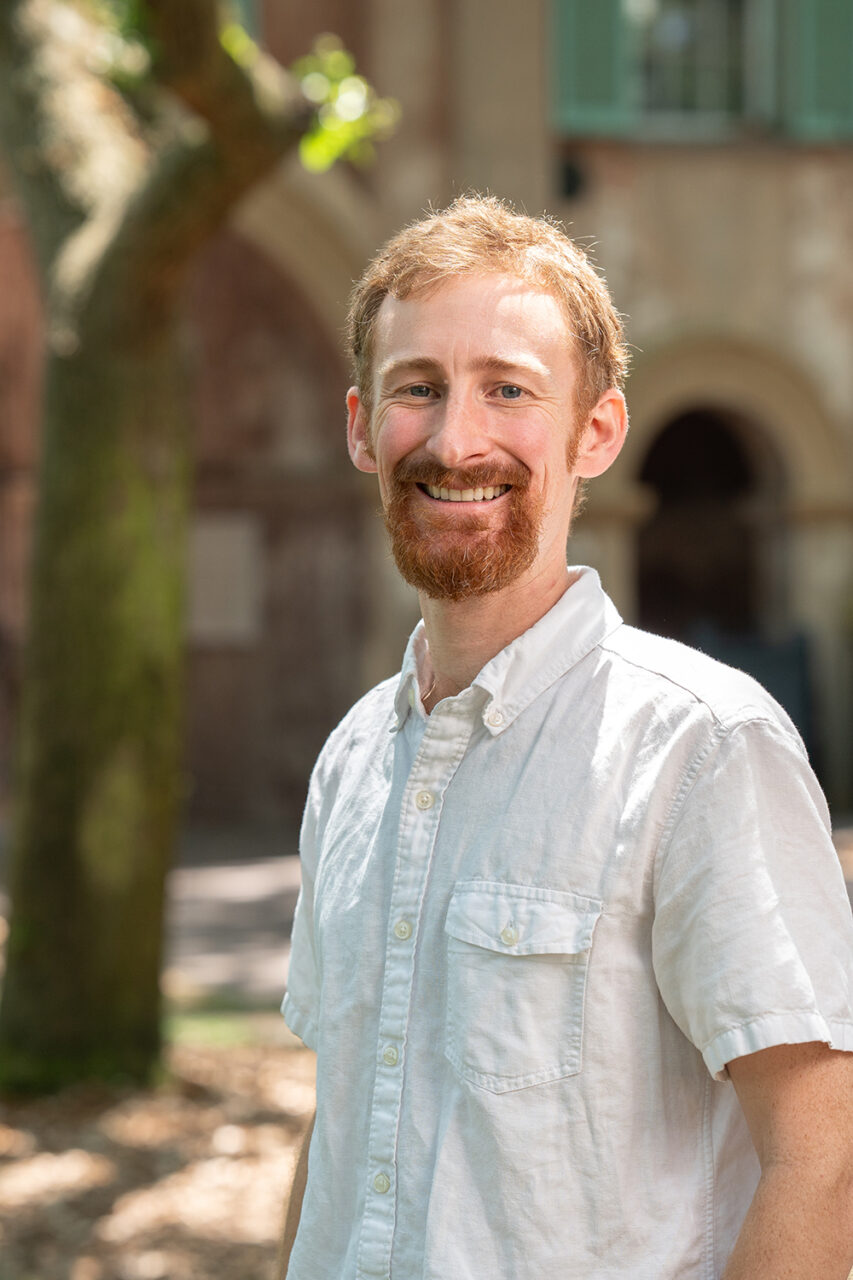
Them, associate professor of geology, received an award to travel to the United Kingdom, where he will be conducting research at Durham University.
“Upon learning I received the award, I was ecstatic and quite humbled,” says Them, who will join a larger group of scientists, humanitarians, stakeholders and other public officials focused on preserving the environment and cultural heritage of the coastal region. “This is an extraordinary opportunity to collaborate with leading scientists and academicians from several universities in northeast region of England.”
His project, “Assessing the Sources and Impacts of Sewage and Legacy Pollution in UK and US Coastal Communities,” will use traditional and novel geochemical indicators to pinpoint the sources of industrial, military and societal pollution along the Yorkshire Coast in the UK and Charleston coastal region in the United States. This information will then be included in outreach campaigns to inform local stakeholders and the public of the types and extent of hazards that exist.
“I look forward to working on a project that will have a positive impact on both humans and the coastal environment in these two picturesque locations,” he says, adding that the research findings will be included in outreach campaigns to inform local stakeholders and the public of the types and extent of hazards that exist. “I am excited about this opportunity to participate in a scholarship program that delivers real impact, advancing human knowledge and tackling global challenges.”
Them and his family will leave for the UK in January 2025, and will stay for seven months.
“My family and I cannot wait to immerse ourselves in the local Geordie culture and make new, long-lasting friendships,” says Them, noting that he’s especially excited to to attend some Liverpool FC football matches at Anfield and some matches in Newcastle, a short train ride away from Durham. “We also cannot wait to eat the famous fish and chips found along the Yorkshire Coast as well as go hunting for fossil ammonites.
“The Fulbright program is continuing to yield invaluable cultural and scientific engagement between nations,” he adds, “and I hope that my award lays the foundation for many future collaborative projects.”
Over 800 individuals teach or conduct research abroad through the Fulbright U.S. Scholar Program annually. Since its inception in 1946, the Fulbright Program has given over 400,000 passionate and accomplished students, scholars, teachers, artists and professionals of all backgrounds and fields the opportunity to study, teach and conduct research, exchange ideas and contribute to finding solutions to important international problems. Now the largest and most diverse international educational exchange program in the world, the Fulbright Program is funded primarily by an annual appropriation made by the U.S. Congress to the U.S. Department of State’s Bureau of Educational and Cultural Affairs.

